What is the best animal to protect chickens? Keeping backyard chickens safe from potential predators like birds of prey and raccoons can be a real challenge. These predators are clever, always on the lookout for an easy meal.
However, certain guard animals can help keep your flock safe. By choosing the best animal to protect your chickens, you can keep those sneaky predators at bay and give your birds a much better chance at living a long, happy life.
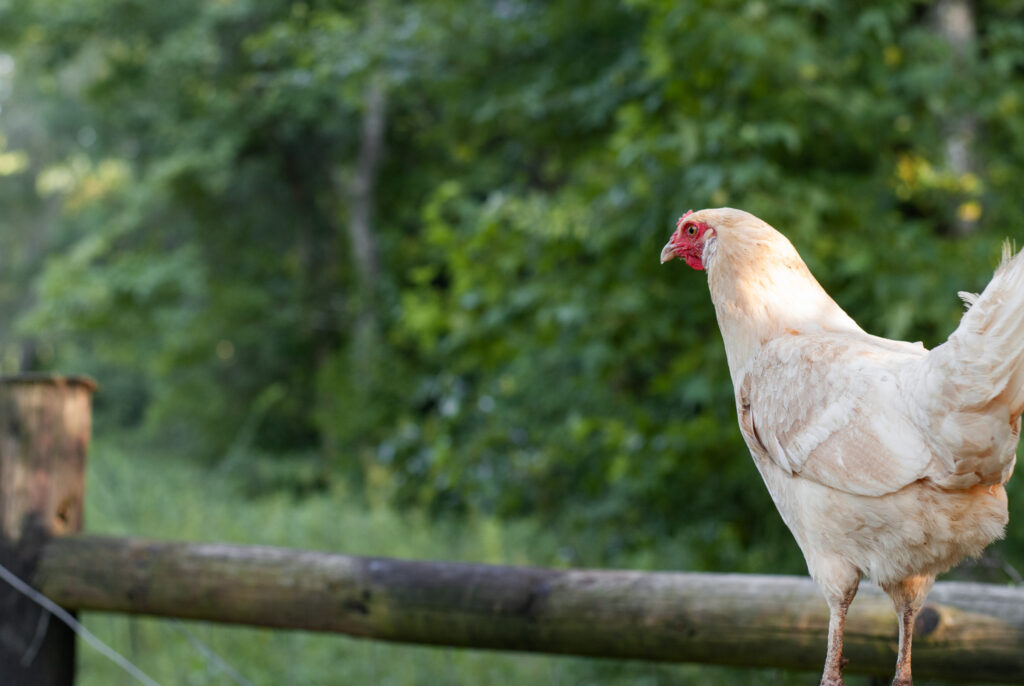
Chickens are Prey Animals
Chickens are very prone to predators because they’re the perfect prey animals. They aren’t very fast, making them easy targets, and they provide a good, filling meal for hungry predators.
Being at the bottom of the food triangle comes with a lot of challenges when it comes to safety. No matter how secure you think your chicken coop is, it seems like there’s always a way for a determined predator to find a weakness and sneak in.
Whether it’s smaller predators like raccoons or larger ones like foxes, your chickens are always at risk. That’s why having a guard animal on your small farm is a good idea. Not only can it help decrease the number of predators around, but it also gives you some peace of mind knowing your flock has extra protection.
More Articles You’ll Love
- Can Chickens Have A Stroke? Signs to Look For
- BEST Traits of Easter Egger Chickens
- 21 Best Protein Sources for Chickens
- The BEST Grit for Chickens and Why It’s Important
- Are Chickens Herbivores? What Chickens Actually Eat
*This post may contain affiliate links which means I make a small commission at no extra cost to you. Read my full disclosure here.*
Potential Predators
If you’re considering backyard chicken predators, the list of predators you might face is pretty long. You could have cats, dogs, coyotes, weasels, hawks, rats, foxes, opossums, skunks, raccoons, bears, owls, buzzards, mountain lions, and even snakes lurking around your coop.
Some of these small predators, like rats or weasels, can sneak in through tiny openings in the chicken coop that you might not even notice. And it’s not just the larger predators that you have to worry about; smaller predators might not go after your adult chickens but could easily target chicks.
We’ve lost lots of chicks to a rat in our coop before we figured out what was happening. It’s a real challenge to keep your flock safe from all these threats.
How to Prevent Predators from Reaching Your Flock
To prevent predators from getting to your flock, it’s essential to have a chicken coop that’s truly predator-proof. Chickens need to be covered on all sides by secure fencing, even from above, to protect against aerial predators like hawks and owls.
Instead of using chicken wire, which predators can easily tear through, use hardware cloth. This stronger material can help keep out both smaller and larger animals. It’s also a good idea to bury the hardware cloth in the ground around the coop to prevent burrowing predators from getting in.
Make sure the flooring of the coop is solid and secure, so there are no weak spots for predators to exploit.
Adding motion-sensor lights around the coop can help scare off nocturnal predators, and hanging shiny objects like old pie pans can deter aerial predators.
Keeping chicken feed and snacks out of the coop will also help reduce the chances of attracting unwanted pests like rats or snakes, which can make it easier for larger predators to find easier access.
Finally, an electric fence around the yard or coop can be a strong deterrent for any potential predators looking to make a meal of your chickens.
BEST Animal to Protect Chickens
Livestock Guard Dogs
Livestock guard dogs (LGDs) can be an excellent choice for protecting your chickens. These dogs have strong instincts and will fiercely protect your flock against predators. They form bonds with the animals they protect and stay alert to any threat.
However, if you’re looking for a dog specifically to protect chickens, it’s important to do your research. Some dogs do better with larger animals and may have instincts that aren’t ideal for a chicken flock. For example, Great Pyrenees are great protectors, but they might try to run away so you’ll need a good fence. LGDs also need proper training, which can be time-consuming.
There are many best dog breeds that are great for protecting a flock, like Great Pyrenees, Anatolian Shepherds, Bernese Mountain Dogs, and other shepherd mixes. But, steer clear of breeds like Greyhounds and terriers, as they were bred to hunt small mammals.
We have a stray mutt named Hero, who’s now the best guard dog ever. It wasn’t always the case. He had a strong prey instinct at first and killed one of our hens. But after some training, Hero has been great, and he keeps a close eye on our free-range chickens.
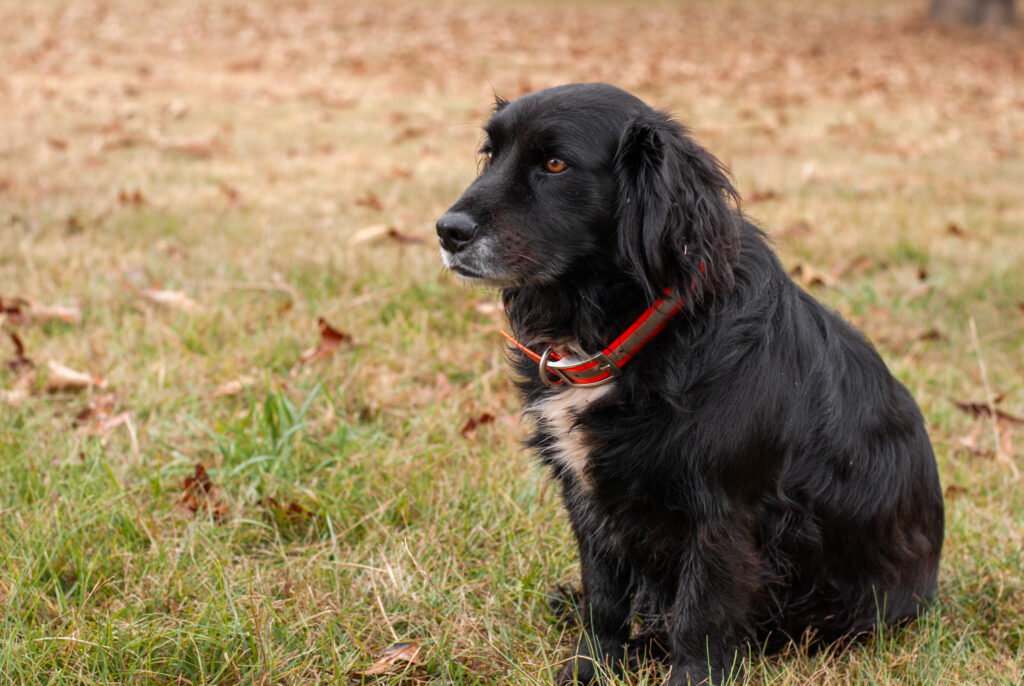
Roosters
Having a rooster as a guardian animal can be a good way to protect your chickens. Roosters are naturally alert and keep a watchful eye out for potential threats. If they sense danger, they’ll quickly alert the hens to run and hide.
If a predator does attack, the rooster will fight it off, giving the hens a chance to escape. However, it’s important to realize that predators that prey on chickens will just as easily prey on roosters.
I recently lost a rooster to a hawk attack. While the rooster may not survive the attack, his bravery can give the rest of the flock the opportunity to get away.
That said, roosters won’t do much against larger predators. They’re also not a great option in urban areas where noise might be an issue. Despite these limitations, a rooster’s protective instincts can still make a big difference in keeping your flock safe from harm.
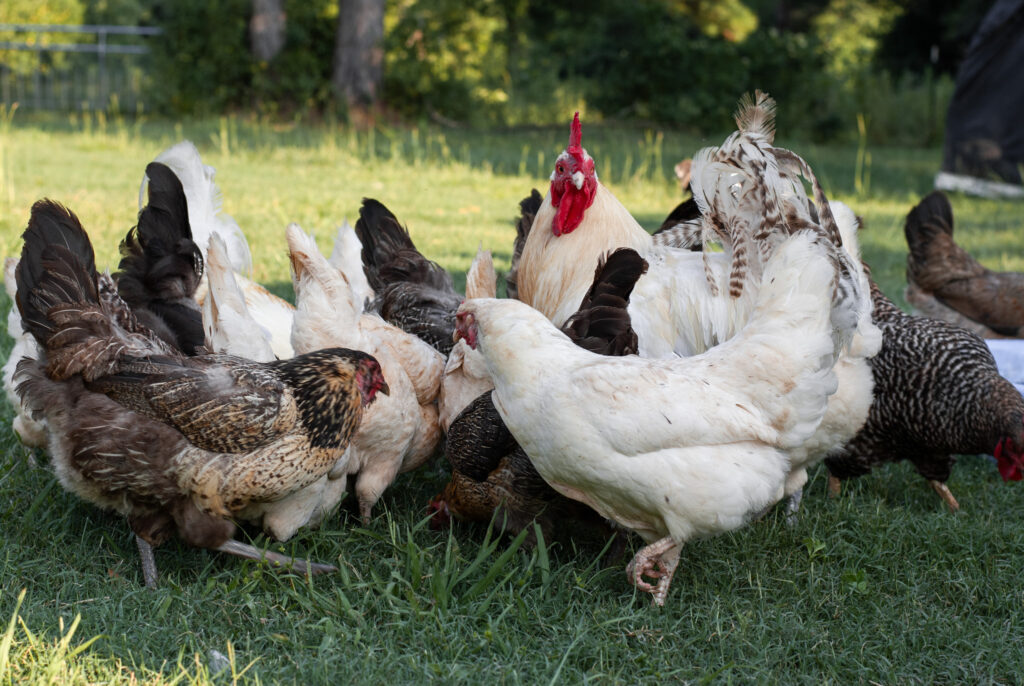
Other Birds To Protect Your Flock
Having other birds as guard animals can be a great way to protect your free-range flock.
Geese
Geese are especially effective as livestock guardian animals. They’ll imprint on the flock and protect them against smaller predators and even aerial predators. Geese can be large and intimidating, making them a good deterrent. My grandmother had a guard goose while living in Germany, and I love hearing her stories about them. We recently added a goose to our homestead for this very reason. Geese are also very noisy and will sound the alarm if they spot a threat, alerting the flock.
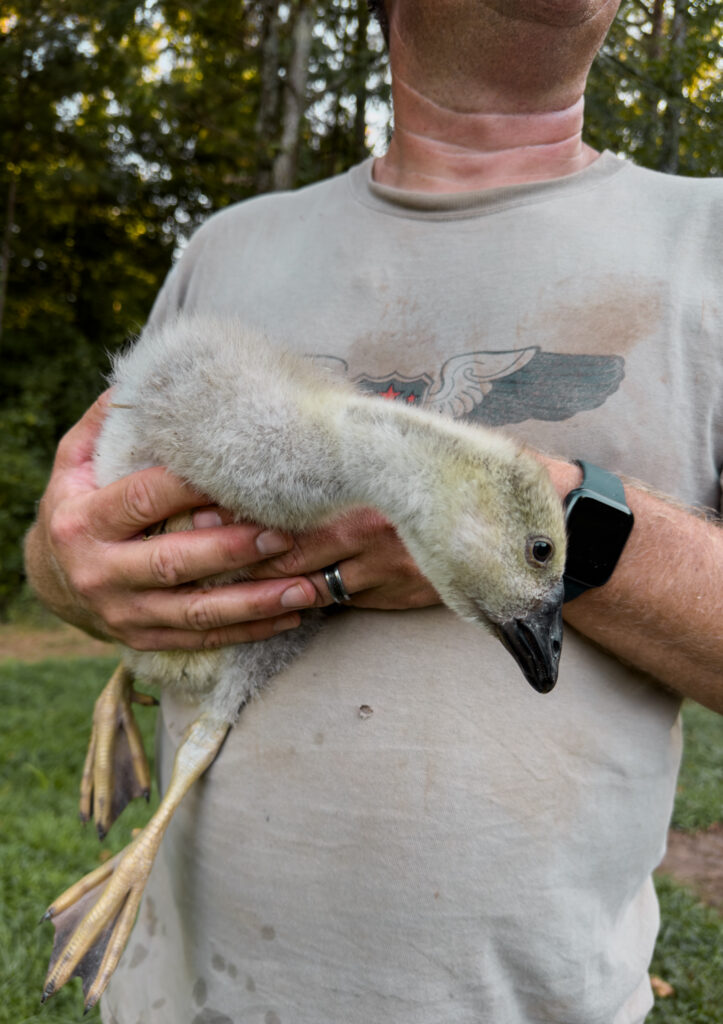
Guinea Fowl
Guinea fowl are another option for protecting chickens. They’re known for their loud alarms when they see a potential predator. If you plan to have guinea fowl on your farm, it’s best to raise them with your chickens from a young age so they bond well.
Turkey
A tom turkey is another bird that can help protect your flock. Chickens and turkeys generally get along, and a large tom turkey can be intimidating to larger predators, like wild dogs. However, they can also become victims themselves. We had a turkey get attacked by an eagle on our farm, and it left a terrible wound.
Learn more on how to raise turkeys and chickens together in a mixed flock!
While birds like geese, guinea fowl, and turkeys can be great at helping protect small animals in your flock, they do have their limits and can need protection too.
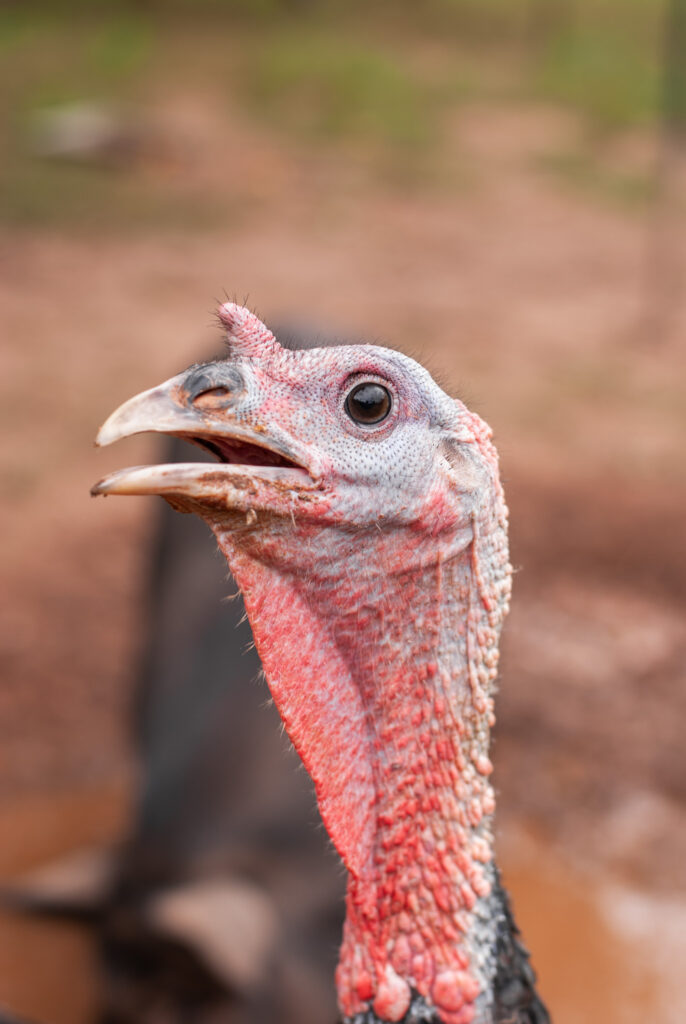
Donkeys
Having a donkey as a livestock guard animal can be a great way to protect your flock of chickens. Especially if you have a large yard. Donkeys are excellent at keeping predators away. They might be the best animal for dealing with larger predators because they can drive off even the worst of them.
Not many animals will mess with a donkey! However, donkeys aren’t as good at recognizing threats as dogs are. They might attack new members of a flock or herd if they don’t recognize them.
Another important thing to know is that donkeys need proper care and companionship. They thrive better when they have another donkey around, so if you’re considering getting one to handle predator issues, it’s best to get two.
While donkeys can be great guardians, they’re not ideal for urban areas and need the space and care that comes with a larger setup.
Llamas
Llamas can be great livestock guardian animals, especially when it comes to dealing with common predators like coyotes, dogs, and foxes. These gentle giants bond well with a variety of animals and will even defend chickens.
If a predator is nearby, a llama will send out a loud warning call while making sure the rest of the herd gets out of the way. They’re social animals and easy to care for, usually doing well in the same setup you’d have for sheep.
Male llamas are often better as guard animals, but females can do the job too. However, llamas don’t handle extreme heat very well, so they might not be the best choice for southern summers.
It’s also important to note that some adult male llamas can be dangerous to humans, so proper handling is key. Overall, llamas can be a great solution if you have predator problems, but they do have some limitations depending on the weather conditions and the setup you have.
Signs of An Attack and Treatment
Signs of a predator attack in your flock can vary depending on the animal. Different predators have different ways of getting that “taste of chicken.”
For instance, raccoons often leave chickens headless. They can pull a chicken’s head through the fencing of a coop and leave the rest of the body on the other side.
Hawks do something similar, easily ripping a chicken’s head off with their talons. They’ll also pin the bird down and remove chunks of feathers to get to the bare skin and create a wound.
Weasels can also leave the body behind, biting the bird to drain its blood and sometimes removing its intestines through the vent area.
Foxes, on the other hand, will usually take the entire animal and leave a trail of feathers behind. Rats can be sneaky too. They’ll take chicks from the nest.
I once had a rat problem in my coop where my chicks slowly disappeared. Dogs, if they get into the chicken run, will often shake chickens until they die.
Keeping a close eye on your free-range birds and checking for signs of these different attacks can help you figure out which predator is causing problems and how to prevent future losses.
Check out my chicken first aid kit must haves to help you treat chicken injuries.
Best Animal To Protect Chickens From Predators FAQs
Can cats help protect chickens?
Cats are usually not the best protectors for chickens. While some cats might help keep smaller pests like mice and rats away, they can also be a threat to baby chicks. It’s better to rely on other animals for protection.
Are alpacas good guard animals for chickens?
Alpacas can help protect a flock, but they’re not as aggressive toward predators as donkeys or llamas. They do bond with other animals and can be alert to dangers, but they’re better suited for protecting against smaller predators.
Can a mule protect my chickens?
Mules can be good at scaring off predators, but they are more often used for protecting larger livestock. While they might help, they’re not as effective for chicken protection as a dedicated livestock guardian dog or even a goose.
Will peacocks protect chickens?
Peacocks are not reliable protectors for chickens. They can be territorial and might scare off some predators with their loud calls, but they’re more likely to be an ornamental addition to your flock rather than a guardian.
Are there any other bird species that can help protect chickens?
Besides geese, guinea fowl, and turkeys, other bird species aren’t usually great protectors. Most birds are more vulnerable to predators than chickens themselves. If you’re looking for protection, stick with the mentioned guardian animals.
Can pigs help protect chickens?
Pigs are not typically used to protect chickens. While their size might deter some predators, pigs usually don’t bond with chickens or actively guard them.
Is it a good idea to use goats to protect chickens?
Goats won’t actively protect chickens. They might deter smaller predators just by their presence, but they’re not reliable guardians and are better suited to their own type of livestock protection.
Can ducks help protect chickens?
Ducks are not natural protectors and are more likely to be fellow targets of predators. They don’t offer any real protection to a flock of chickens.
Best Animal to Protect Chickens-Final Thoughts
Finding the best animals to protect your chickens can make a huge difference in keeping your flock safe. Whether it’s a guard donkey with a strong instinct for chasing off predators, a goose that imprints on your chickens, or a loyal dog that keeps a watchful eye, there are many options for poultry producers to consider.
Each animal has its strengths and can do a great job of defending your flock against different types of threats. By choosing the right guardian animal and providing proper training and care, you can help ensure your chickens stay safe and healthy.
If you enjoyed this chicken article, please share it!
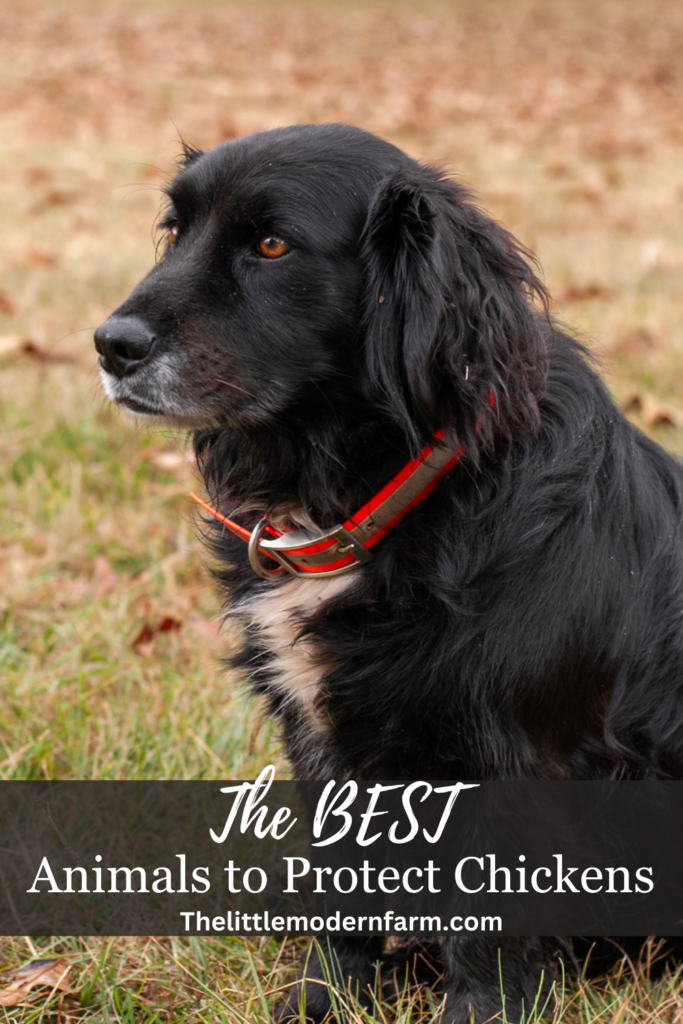
More From The Farm
What is the best type of grit for chickens? Chicken grit might seem like a small thing, but it plays a big role in keeping your chickens healthy. Grit is basically tiny stones or sand that chickens eat to help them digest their food.
Since chickens don’t have teeth, the grit moves into their digestive tract, where it helps grind up food, making it easier to digest. There are different types of grit, and choosing the right one can make a big difference in how well your chickens process their food and stay healthy.
[…] The Best Animal to Protect Chickens From Predators […]